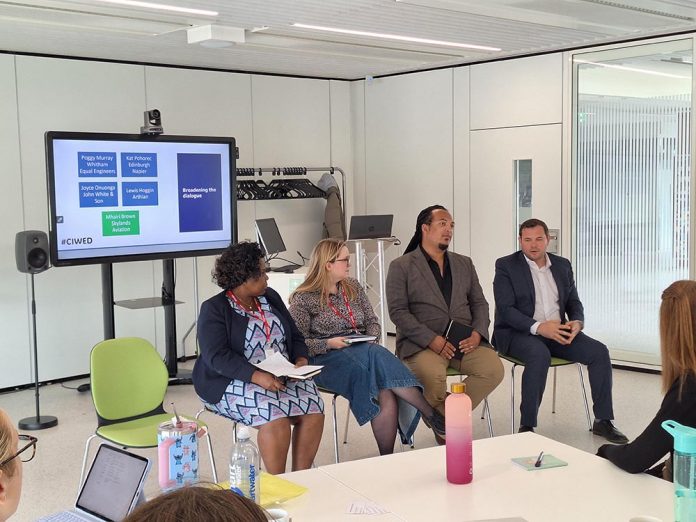Scotland’s engineering sector is at a pivotal moment. As the industry adapts to new technologies and global challenges, one factor stands out as essential for long-term success: diversity and inclusion. Far from being a “nice to have,” inclusive practices are now recognised as critical drivers of innovation, resilience, and growth.
At CeeD, we’ve long championed these challenges and opportunities. Through our collaborative network of industry partners, academic institutions, and government bodies, we continue to promote inclusive practices that strengthen the sector and support sustainable growth.
Inclusive Leadership Drives Innovation
Effective leadership in engineering today means more than technical expertise. It requires empathy, visibility, and a commitment to equity. At CeeD, we actively support leadership development through peer-to-peer learning, workshops, and events that highlight inclusive leadership as a cornerstone of innovation. Our International Women in Engineering Day (IWED) event this year brought together industry leaders, engineers, and changemakers to confront the challenges and opportunities around equity in engineering. The message was resounding: to build a resilient, innovative, and future-ready sector, we must embrace the full spectrum of human talent.
Culture Change Starts with Accountability
Workplace culture remains a significant barrier for many women and minority professionals in engineering. Microaggressions, tokenism, and the burden of unpaid “office housework” are still common. These issues often go unaddressed, leading to burnout and attrition.
CeeD encourages organisations to embed diversity, equity, and inclusion (DEI) into every policy and practice, not as an afterthought, but as a strategic priority. Through our member forums and best practice sharing, we help companies recognise and reward contributions to mentoring, onboarding, and DEI initiatives as core leadership competencies.
Rethinking Recruitment and Promotion
Traditional hiring practices often prioritise cultural fit over diversity of thought and experience. Job descriptions can be overly complex, gendered, or inaccessible, unintentionally excluding talented candidates from underrepresented backgrounds.
To build a more inclusive workforce, employers should:
Simplify job descriptions and disclose salary ranges.
Value soft skills and diverse life experiences alongside technical ability.
Standardise accessibility adjustments.
Use inclusive language and broaden recruitment channels.
Building the Talent Pipeline Early
The journey into engineering starts long before the job interview. Early engagement through schools is crucial, yet many teachers lack up-to-date industry knowledge or connections. Stronger partnerships between schools and engineering firms can bridge this gap.
By promoting diverse role models and using inclusive language in outreach, the sector can inspire the next generation of engineers—especially those who might not see themselves represented in the field today.
Allyship and Psychological Safety
Creating a truly inclusive workplace means fostering psychological safety – a culture where individuals feel secure enough to speak up, take risks, and be themselves without fear of embarrassment, punishment, or exclusion. This concept is especially vital in engineering environments, where innovation, collaboration, and problem-solving are daily necessities.
CeeD promotes psychological safety through leadership development programmes and cross-sector learning groups, helping organisations build environments where:
Ideas and feedback are welcomed.
Mistakes are seen as learning opportunities.
Questions and concerns are addressed respectfully.
Flexibility and Accessibility as Standard
Rigid work structures disproportionately impact caregivers and those with accessibility needs. Flexibility should be built into job design and team norms from the outset. Normalising conversations about working styles and needs helps create a more supportive and productive environment for everyone.
The Bottom Line
Diverse teams are more creative, more effective, and better equipped to solve the complex problems facing the engineering sector today. Inclusion isn’t just about fairness. It’s about building better businesses and a stronger Scotland.
At CeeD, we remain committed to embedding inclusive practices into every level of the organisation. Through ongoing partnerships, shared learning, and sector-wide collaboration, we’re helping to engineer a more equitable and innovative future for Scotland.






